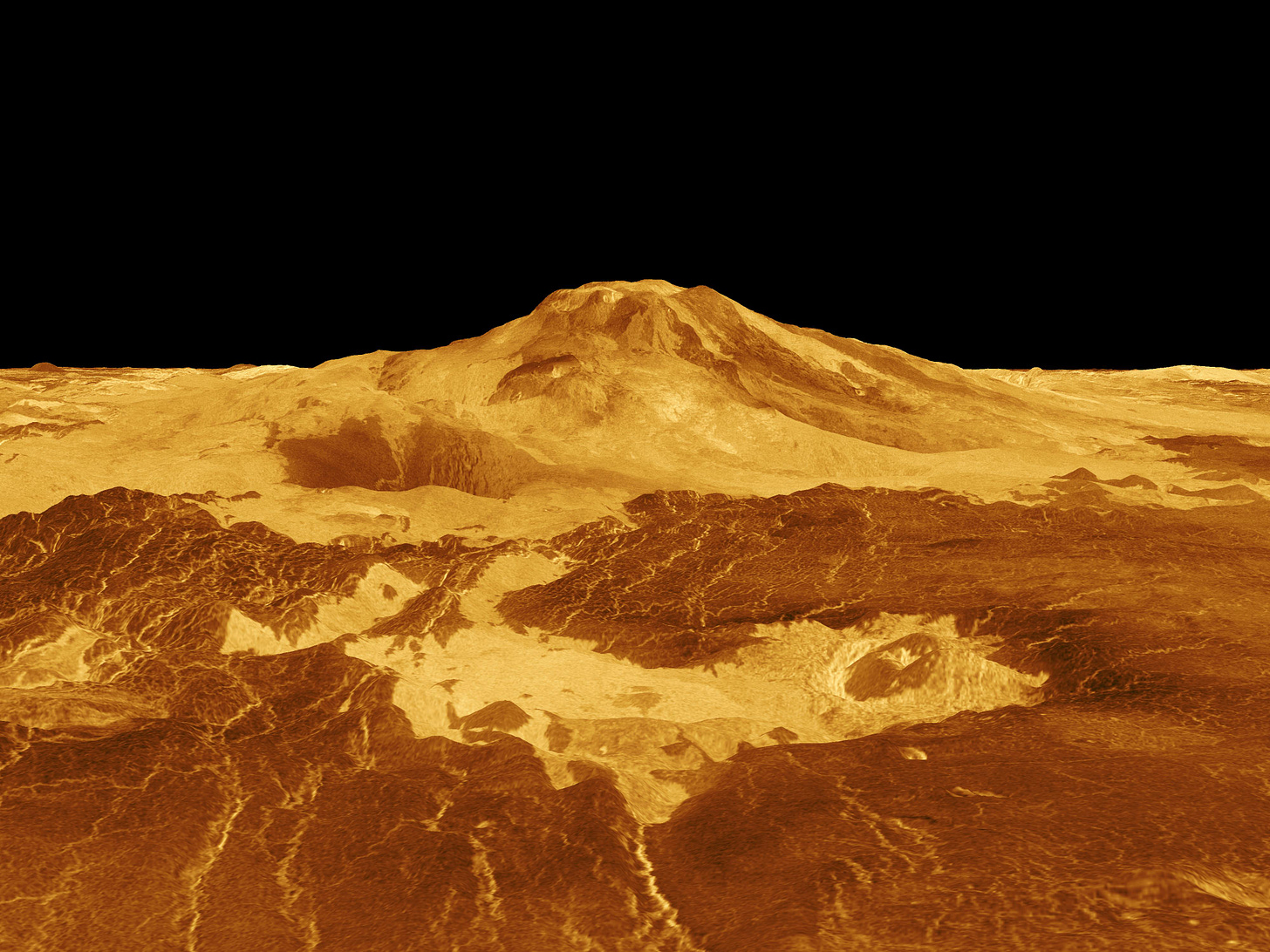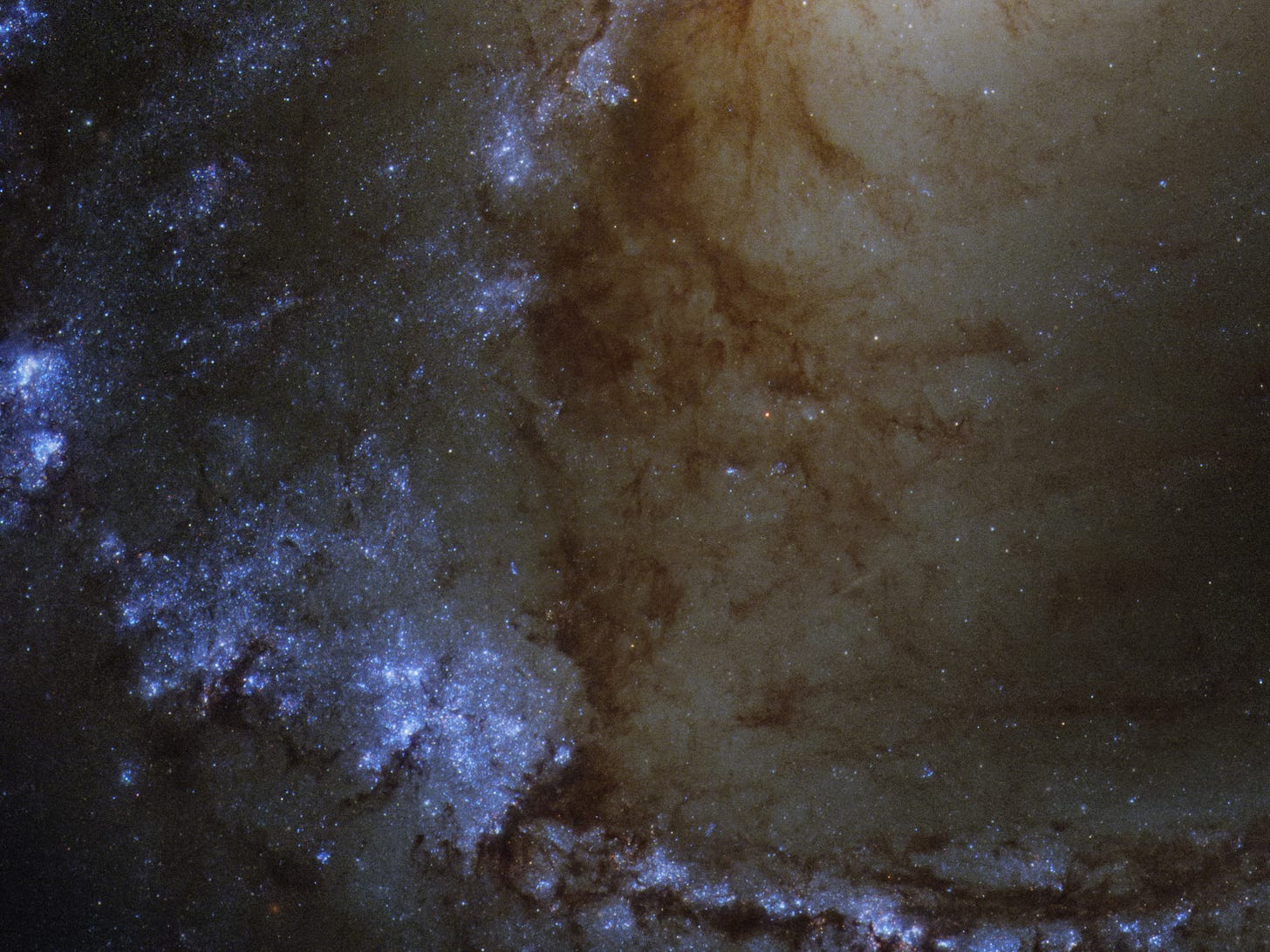In memory of my little sweet Ricky
Also, the Deep Space Effect: a cosmic Overview Effect.
I’m heartbroken because my sweet little doggy Ricky went to the Rainbow Bridge - a beautiful metaphor for things that we don’t understand yet. He was very sick and we had to put him down. This was our last walk. I know our sweet Ricky will be with us again, but still. I’m taking an offline break.
Turing Church chat is enabled. All full subscribers (paid and complimentary) can start new threads, and all subscribers (including free subscribers) can reply. Now you can access Turing Church chat from the Substack app AND the web. To access the chat from the Turing Church website click Chat in the navigation bar of the main page.
Last week planetary scientists have found the first direct geological evidence of recent volcanic activity on the surface of Venus. The scientists made the discovery analyzing radar images of Venus taken more than 30 years ago, in the 1990s, by NASA’s Magellan mission.

Venus is not frequently mentioned alongside the Moon and Mars as a habitat for human settlers, but I think it should. I’ve been reading a science fiction novel about Venus: “The Quiet Invasion” (2000), by Sarah Zettel. The novel is good, hard science fiction. Scientists working in a large research base floating in the clouds of Venus meet alien refugees from the stars. The aliens are more advanced than us. They prefer biotechnology to cold metallic engineering, but their engineering can build stargates. The aliens are essentially nice, but conflict can still arise.
Reading again the works of Yuval Harari, I remember that we were both interviewed by BBC Radio in 2018 for a FutureProofing episode on the future of faith. The episode is available online for streaming and downloading. I speak at the beginning of the episode, and Harari comes right after me. I was interviewed over Skype, but the BBC sent a local representative to separately record my end of the audio, therefore the sound is crystal clear.
On March 22 (same day my sweet little Ricky went to the Rainbow Bridge) I participated in a webinar on the Deep Space Effect produced by the Cultural Considerations Working Group of the Moon Village Association (MVA). The main speaker was Frank White, who coined the term “Overview Effect” to describe the powerful mind-changing and life-changing impact of seeing the Earth from space. Frank wrote a series of books starting with the seminal and very influential “The Overview Effect: Space Exploration and Human Evolution” (first published in 1987). See also “The Cosma Hypothesis: Implications of the Overview Effect” (2018).
The Deep Space Effect is a cosmic version of the Overview Effect. Looking at the Earth from space, we feel one with the Earth. Looking at deep space, we feel one with the universe. Frank has used the term Universal Insight for more or less the same thing. In a previous webinar on the Deep Space Effect Frank said that he doesn’t know who coined the term Deep Space Effect. I heard it first from MVA’s President Giuseppe Reibaldi, who partecipated in both webinars.
Both overview effects are important, but to me the Deep Space Effect is more important. And you can experience it right here looking at the night sky, without leaving the Earth!
Frank extends James Lovelock’s concept of Gaia, the living Earth, to the whole universe. The universe itself will become a living whole and we are “actively encouraged by larger forces” to expand beyond the Earth and “help the universe become increasingly self-aware.”
Whether this “complements or contradicts existing religious value systems depends largely on the interpretation of those systems by the people who have adopted them,” said Frank. “However, my interviews with astronauts of faith suggest that their religious perspective was strengthened, rather than being weakened.”
Frank notes that his cosmology has parallels with Harari’s “dataism,” described by Harari as the “most interesting emerging religion.” Dataism, as defined by Harari, “says that the universe consists of data flows, and the value of any phenomenon or entity is determined by its contribution to data processing.” This may sound kind of cold and metallic, but if life is an algorithm and self-awareness is data processing the parallels with Frank’s ideas are evident.

My comments and questions to Frank:
Let me start with my own interpretation of the Deep Space Effect.
To me, the feeling of unity with the universe that you describe embraces the whole of space and time, including the future. Looking at the majestic galaxies out there, I feel close to future humans living among the stars and contributing to cosmic evolution.
Looking at deep space I feel part of our cosmic destiny. We are indeed, as you say, actively encouraged by larger forces to expand into the universe out there and play an important cosmic role among the stars. The Universal Insight is part of my personal religion, and I seek the Deep Space Effect.
Our duty to God, or to God by any other name, or to the cosmos, or to some cosmic principle that favors life, or to life itself, is to expand beyond the Earth into the black sky and support cosmic evolution.
Frank, do you think the Universal Insight could be incorporated into the value systems of the world’s traditional religions? Could the integration of the Universal Insight into the world’s traditional religions help humanity go to the stars and support cosmic evolution? Should this integration happen? And how can we make it happen?
Or alternatively, should new religions centered on the Universal Insight appear and gradually replace traditional religions, with new rituals centered on the Deep Space Effect? Which one of these two scenarios would you prefer?
Could you elaborate on the parallels and differences between your ideas and the emerging religion that Yuval Harari calls “Dataism” in his book “Homo Deus” (2016)?
There was not enough time for Frank to address all these points, so I asked him to answer only the last question. I hope to talk to him again soon.
Here’s the video:
I love you, little sweet Ricky!


